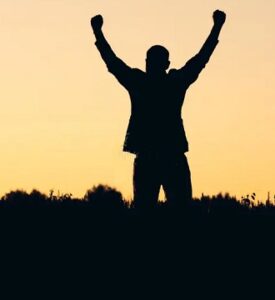
For a spiritualized asceticism
The inverse expression created by Sloterdijk is very suggestive: “a un-spiritualized asceticism” because it notes the reality of human inner life, man finds himself “lowered”, and this is not only as an individual but also as a society, so he looks for ‘exercises’ to lift himself up and put himself in an upright position, creating not a spirituality but an “exercise society”.
asceticism” because it notes the reality of human inner life, man finds himself “lowered”, and this is not only as an individual but also as a society, so he looks for ‘exercises’ to lift himself up and put himself in an upright position, creating not a spirituality but an “exercise society”.
Sloterdijk writes: “In a word, we had to talk about the incapacitated, about those with another constitution, to find an expression that articulates the general constitution of beings under vertical tension. “You have to change your life!” this means […]. You have to pay attention to your inner vertical and examine how the pull of the upper pole acts on you! It is not walking straight that makes a man a man, but the emerging awareness of the inner unevenness that makes a man stand up.” (Sloterdijk, 2009, p. 99).
This is partly true, because in fact a man with a straight back is not just standing, he is also rising and can look at the world around him from the front and higher up, and even exercise can help, but without an “inner” vertical life, exercise will be useless.
In Sloterdijk’s anthropotechnical reading, it’s not just the new media (the previous ones – radio, cinema and television – already did this), but Olympic athletics, which resumed in 1896, takes up the idea of the manly man and overcoming marks as a model of the “exercise” man this has been incorporated into modern spirituality, “spiritual exercises”, says the author:
“Whether Christian or non-Christian, they [religions] form materialiter and formaliter nothing other than complexes of inner and outer actions, systems of symbolic exercises and protocols for regulating the relationship with superior stress factors and ‘transcendental’ powers – with a word anthropotechnics in an implicit way.” (Sloterdijk, 2009, p. 139).
Sloterdijk (2006) had already shown in his book Zorn und Zeit [Wrath and Time], in the context of a political psychology, how pride, ambition and vanity contribute to a verticalization of social life, but his disciple Byung-Chul Han goes further by creating social psychopolitics.
We do exercises, we “convert”, but the inner life remains the same, we leave the exercises and return to a non-vertical life externally: corruptions, small and big lies, perversions, getting drunk and taking drugs – in short, an unspiritualized world.
A true asceticism would make man more vertical, more upright, with a dread of situations of disorder and human discomfort (if not at the moment, there is always a physical and mental charge in the aftermath of euphoria or false joy).
The Eastern philosophy of absence explains a lot. We need to be absent for true spirituality to come about. This exercise is difficult and demanding, but once what is “just a moment” has passed, it becomes spirituality.
SLOTERDIJK, Peter. (2009) Du musst Dein Leben ändern. Über Antropotechnik Frankfurt, Suhrkamp.









